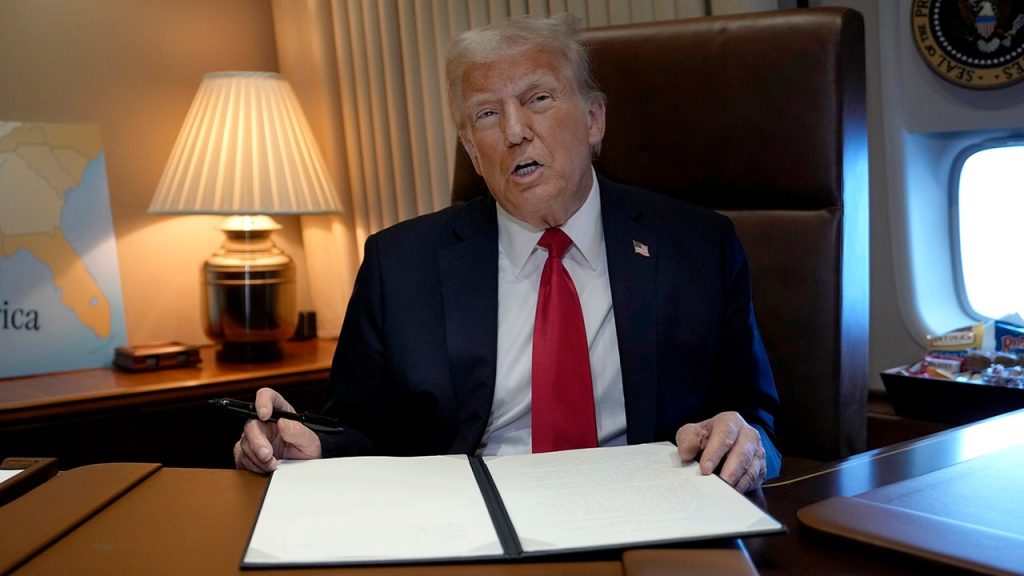A scheduled vote on the proposal to permanently rename the Gulf of Mexico to the Gulf of America has stirred discontent among House Republicans. As GOP leaders push forward with this largely symbolic initiative, several members have voiced frustration over the focus on a seemingly frivolous matter during a slow legislative week. As GOP negotiators work behind the scenes to unify divisions over significant issues, including Medicaid reform and tax policy, many lawmakers express a desire to tackle more pressing matters. Amidst this, President Donald Trump’s influence remains palpable as his agenda continues to shape legislative discussions in Congress.
| Article Subheadings |
|---|
| 1) Concerns Over Legislative Priorities |
| 2) Divisions within the GOP Conference |
| 3) The Gulf of America Act: Support and Opposition |
| 4) Impact on the GOP’s Future Agenda |
| 5) The Upcoming House Vote |
Concerns Over Legislative Priorities
The impending vote to permanently rename the Gulf of Mexico to the Gulf of America has generated notable skepticism among members of the House Republican Conference. Many representatives express dissatisfaction that such a symbolic gesture is receiving attention when what they regard as more pressing legislative issues demand focus. Lawmakers cite constituents who are more concerned about tangible matters—such as graduated taxes, business tariffs, and healthcare reform—over symbolic renaming efforts. “This is a critical time to listen to the concerns of our people, not to indulge in political posturing,” commented one moderate Republican, who would prefer to remain anonymous for candidness.
Divisions within the GOP Conference
Within the GOP ranks, dissent regarding the vote on the Gulf of America name change has surfaced from both the moderate and conservative factions. Multiple Republicans, including Don Bacon from Nebraska, Jay Obernolte from California, and Glenn Grothman from Wisconsin, have publicly aired their grievances during GOP whip meetings. The theme resonating through their critiques is that the proposed name change is not a priority compared to pressing legislative agendas. One congressman articulated that while “we are honoring a name, we are neglecting to address crucial policies and reforms that can have substantial impacts on our voters.” This growing division suggests that the leadership’s decision is not universally accepted, even among its supporters.
The Gulf of America Act: Support and Opposition
Introduced by Marjorie Taylor Greene from Georgia, the Gulf of America Act has become a polarizing legislative item. Greene, a key ally of former President Trump, has positioned the name change as integral to promoting an “America First” agenda, signaling that the bill represents more than just a name change—it reflects broader national priorities. Her advocacy garners support from specific factions within the party, particularly among those aligned closely with Trump’s policies. Conversely, others within the House express alarm over the act’s implications. They view it as an unnecessary distraction in a critical legislative cycle that requires urgent attention toward substantive policies instead of what some deem “political theater.”
Impact on the GOP’s Future Agenda
Concerns about a divisive agenda could influence the GOP’s capacity to rally support across various agendas. Some lawmakers are apprehensive that such symbolism might detract from more important discussions surrounding budgetary practices, healthcare reforms, and environmental policies. The ability of GOP leaders to navigate these competing interests and foster unity could determine how effectively they can advocate their broader legislative goals. The inner-party tensions are underscored by the reality that the slim majority in the House allows for little dissent without jeopardizing critical votes.
The Upcoming House Vote
The proposed Gulf of America Act is expected to undergo a vote soon, with Speaker Mike Johnson expressing strong support for the measure during a recent press conference. Johnson claimed that this act would bolster the conservative agenda, aligning with Trump’s executive orders and signaling a return to foundational policies championed during his presidency. The looming vote is a critical moment for House Republicans as they attempt to present unity, despite the backdrop of dissension. Notably, while dissatisfaction is apparent, it remains unclear how many representatives will ultimately break ranks and vote against the bill when it is brought to the floor.
| No. | Key Points |
|---|---|
| 1 | The scheduled vote on renaming the Gulf of Mexico has ignited frustration among House Republicans. |
| 2 | Many GOP lawmakers view the name change as a distraction from pressing legislative matters. |
| 3 | Key representatives have openly criticized the bill for its perceived frivolity. |
| 4 | Greene’s proposal aligns with Trump’s agenda but raises concerns among some Republicans. |
| 5 | The upcoming vote will test party unity within the slimmest of House majorities. |
Summary
The scheduled vote on the Gulf of America Act not only highlights the divisions within the House Republican Conference but also signals the ongoing influence of former President Trump on legislative priorities. While symbolic gestures are often commonplace in politics, the current focus on renaming efforts amid pressing national issues raises questions about the GOP’s capacity to effectively govern. As lawmakers weigh the implications of their votes, the outcome of this measure may shape future initiatives and determine the party’s ability to maintain a unified front.
Frequently Asked Questions
Question: What is the Gulf of America Act?
The Gulf of America Act is a legislative proposal aimed at permanently renaming the Gulf of Mexico to the Gulf of America, introduced by Rep. Marjorie Taylor Greene.
Question: Why are some Republicans opposed to the vote?
Opposition among certain Republicans stems from viewing the name change as a symbolic gesture that diverts attention from more pressing legislative issues such as healthcare and taxation.
Question: What impact could this vote have on GOP unity?
The vote serves as a test for party unity, as divisions over priorities may influence lawmakers’ willingness to support the bill and could affect future legislative cooperation.


